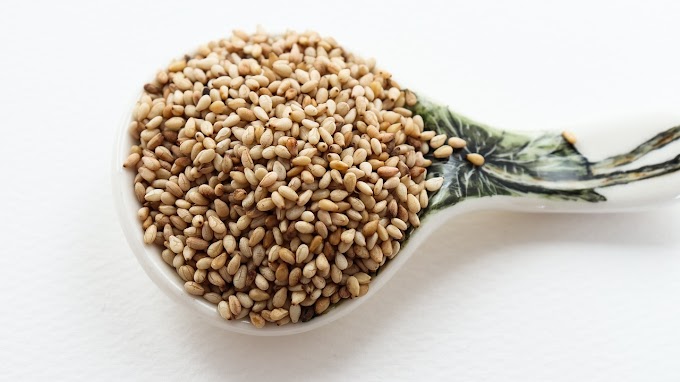Women's Health And Ayurveda
Introduction
In a fast-paced world where stress, environmental factors, and lifestyle choices impact women's health, there is a growing interest in alternative medicine that offers holistic solutions. Ayurveda, an ancient Indian system of medicine, has gained popularity for its comprehensive approach to well-being. In this article, we explore the profound connection between women's health and Ayurveda, shedding light on the timeless wisdom that promotes balance and vitality.
Understanding Ayurveda
Ayurveda, often referred to as the "science of life," is a holistic healing system that originated in India over 5,000 years ago. It is based on the belief that a harmonious balance between the body, mind, and spirit is essential for overall well-being. Ayurveda categorizes individuals into three doshas – Vata, Pitta, and Kapha – representing different combinations of the five elements (earth, water, fire, air, and ether). Each person's unique constitution determines their physical and mental characteristics.Ayurveda and Women's Health
Menstrual Health: Ayurveda recognizes the menstrual cycle as a crucial aspect of a woman's health. The emphasis is on maintaining balance in the doshas to alleviate menstrual disorders such as irregular periods, cramps, and excessive bleeding. Herbal remedies and lifestyle modifications play a significant role in managing these issues.Hormonal Balance: Ayurveda offers insights into restoring hormonal balance, addressing concerns like polycystic ovary syndrome (PCOS) and hormonal imbalances leading to mood swings and skin issues. Tailored dietary recommendations and herbal supplements are integral components of Ayurvedic interventions.
Pregnancy and Postpartum Care: Ayurveda places special emphasis on pregnancy and postpartum care. It provides guidelines for a healthy pregnancy, suggesting specific diets, herbal formulations, and lifestyle practices to support the mother and ensure the well-being of the developing fetus. Postpartum care focuses on rejuvenation and recovery, helping women regain strength and vitality.
Ayurvedic Lifestyle Practices for Women
Dietary Recommendations: Ayurveda advocates for a well-balanced diet that aligns with an individual's dosha. For women, this means incorporating nourishing foods that support their unique constitution and address specific health concerns.Yoga and Exercise: Tailored yoga practices and exercises are recommended based on a woman's dosha to enhance flexibility, strength, and overall vitality. These practices not only contribute to physical well-being but also help manage stress and promote emotional balance.
Meditation and Mindfulness: Ayurveda recognizes the mind-body connection and encourages practices like meditation and mindfulness to cultivate mental clarity, reduce stress, and enhance emotional resilience. These practices are invaluable for women facing the demands of modern life.
.jpg)
Ayurvedic Herbs for Women's Health
Ashwagandha: Known for its adaptogenic properties, Ashwagandha helps the body adapt to stress, supporting hormonal balance and reproductive health.Shatavari: A renowned herb for women's health, Shatavari is believed to regulate menstrual cycles, enhance fertility, and alleviate symptoms of menopause.
Triphala: This combination of three fruits – Amalaki, Bibhitaki, and Haritaki – is a powerful antioxidant that supports digestive health, detoxification, and overall well-being.
Incorporating Ayurveda into Modern Lifestyles
In the hustle and bustle of contemporary life, integrating Ayurvedic principles can seem challenging. However, simple modifications such as mindful eating, regular exercise, and stress management techniques can go a long way in promoting women's health.Conclusion
Ayurveda offers a holistic approach to women's health, addressing not only physical well-being but also mental and emotional balance. By understanding one's unique constitution and incorporating Ayurvedic principles into daily life, women can unlock the timeless wisdom that fosters vitality and longevity. Embracing the synergy between Ayurveda and women's health is a journey toward holistic wellness that transcends the boundaries of time and culture.Frequently Asked Questions
What is Ayurveda, and how does it differ from conventional medicine for women's health?Ayurveda is an ancient holistic healing system that focuses on the interconnectedness of the body, mind, and spirit. Unlike conventional medicine, which often treats symptoms, Ayurveda aims to address the root cause of health issues by balancing the doshas and promoting overall well-being.
Can Ayurveda help with menstrual irregularities and hormonal imbalances?
Yes, Ayurveda provides personalized approaches to manage menstrual irregularities and hormonal imbalances. Through dietary adjustments, herbal supplements, and lifestyle modifications based on an individual's dosha, Ayurveda seeks to restore balance to the reproductive system.
Are there specific Ayurvedic practices recommended during pregnancy?
Absolutely. Ayurveda places great importance on prenatal care, offering guidelines for a healthy pregnancy. This includes personalized dietary recommendations, herbal formulations, and practices to support the mother's well-being and foster the healthy development of the fetus.
How can Ayurveda support postpartum recovery?
Ayurveda recognizes the need for postpartum rejuvenation. Practices such as specialized diets, herbal remedies, and self-care routines are recommended to help women regain strength, balance hormones, and promote overall recovery after childbirth.
Can Ayurvedic herbs be safely incorporated into women's daily routines?
Yes, many Ayurvedic herbs are safe for regular consumption when used appropriately. However, it's essential to consult with a qualified Ayurvedic practitioner to determine the right herbs and dosages based on individual health needs and dosha balance.
Is Ayurveda compatible with modern lifestyles?
Absolutely. Ayurveda is adaptable and can be seamlessly integrated into modern lifestyles. Simple practices such as mindful eating, yoga, and meditation can be easily incorporated into daily routines to promote overall well-being.
Are Ayurvedic recommendations only for women experiencing health issues, or can they be preventive as well?
Ayurveda is both preventive and therapeutic. By understanding one's unique constitution and making lifestyle choices aligned with Ayurvedic principles, women can proactively maintain good health, prevent imbalances, and promote longevity.
Can Ayurveda help with stress and emotional well-being?
Yes, Ayurveda recognizes the mind-body connection and offers practices such as meditation and mindfulness to manage stress and enhance emotional resilience. These practices contribute to the overall mental well-being of women facing the challenges of modern life.
Are Ayurvedic recommendations one-size-fits-all, or are they personalized?
Ayurveda emphasizes individualized care based on one's dosha, ensuring that recommendations are tailored to a person's unique constitution. This personalized approach enhances the effectiveness of Ayurvedic interventions for women's health.
How can I find a qualified Ayurvedic practitioner for women's health consultations?
To find a qualified Ayurvedic practitioner, consider seeking recommendations from reputable sources, checking certifications, and ensuring that the practitioner understands women's health issues. Online directories, referrals from healthcare professionals, and Ayurvedic clinics are good places to start your search.







